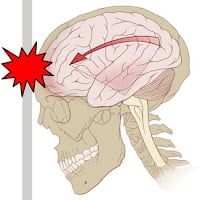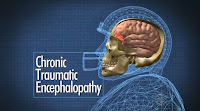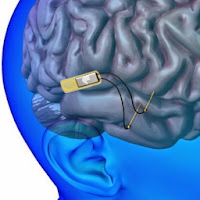
6 Steps to Treat Concussions & Prevent CTE Dementia
UNTREATED CONCUSSIONS may trigger CTE dementia (Chronic Traumatic Encephalopathy). Proper evaluation & treatment of concussions help brains heal. Learn how to best manage concussions.

UNTREATED CONCUSSIONS may trigger CTE dementia (Chronic Traumatic Encephalopathy). Proper evaluation & treatment of concussions help brains heal. Learn how to best manage concussions.

VIDEO: CTE Dementia is football’s big brain risk. That’s why Chris Borland, one of the most promising rookies in the NFL (National Football League), announced

Diagnosing CTE, a dementia common to athletes, is crucial. It’s often misdiagnosed as Alzheimer’s, but CTE needs different treatment. For the first time, there is an experimental test that can confirm a CTE diagnosis during life. See how.

VIDEO: Professional athlete Patrick Grange died with CTE dementia. Learn the connection between CTE dementia and activities that are hard on the head.

Can an implantable neural device stimulate brain cells to help restore memory? Find out why the U.S. Department of Defense is betting millions that it

New research shows that the Alzheimer’s drug memantine (Namenda™) may treat Huntington’s dementia. It seems to improve motor learning and coordination, as well as keep cells alive. It appears to work in a way that could also benefit dementia in traumatic brain injury and some forms of stroke. Can memantine offer a multi-type dementia breakthrough?

When Memory Loss Becomes Invisible to Those Who Need Help Most

Many diagnosed patients won’t qualify — here are the
7 medical criteria.

People worry about becoming forgetful. Is it the first sign of Alzheimer’s or just the passing years? After all, forgetfulness is a normal part of aging. Check out these quick ways to tell the difference.

Memory failing? New research shows you may need help, but not for dementia. Memory slips, stress and fatigue are growing in people with healthy memory.

People worry about becoming forgetful. Is it the first sign of Alzheimer’s or just the passing years? After all, forgetfulness is a normal part of aging. Check out these quick ways to tell the difference.

Researchers found in a study that people who developed dementia were more likely to have their credit rating drop at least two and a half years before the diagnosis. Some had problems managing their money up to six years before. Find out more.

Scientists say restoring a brain protein, not removing amyloid plaques, should be the target of Alzheimer’s dementia therapies. The researchers said treatment might lie in normalizing the levels of a specific brain protein.
No spam, only news and updates.


